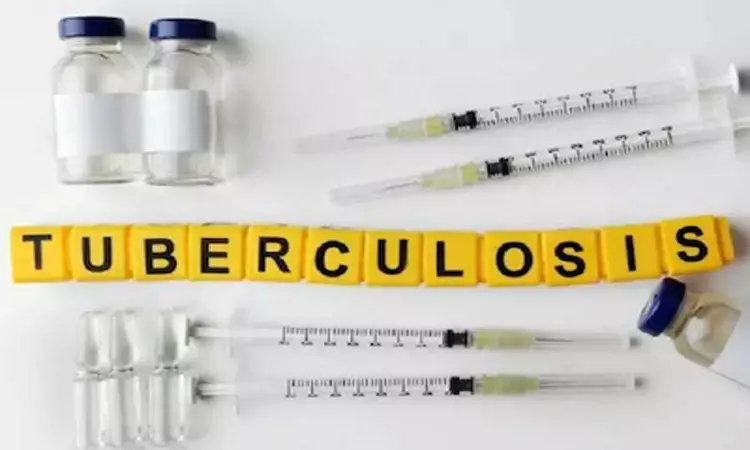- Home
- Medical news & Guidelines
- Anesthesiology
- Cardiology and CTVS
- Critical Care
- Dentistry
- Dermatology
- Diabetes and Endocrinology
- ENT
- Gastroenterology
- Medicine
- Nephrology
- Neurology
- Obstretics-Gynaecology
- Oncology
- Ophthalmology
- Orthopaedics
- Pediatrics-Neonatology
- Psychiatry
- Pulmonology
- Radiology
- Surgery
- Urology
- Laboratory Medicine
- Diet
- Nursing
- Paramedical
- Physiotherapy
- Health news
- Fact Check
- Bone Health Fact Check
- Brain Health Fact Check
- Cancer Related Fact Check
- Child Care Fact Check
- Dental and oral health fact check
- Diabetes and metabolic health fact check
- Diet and Nutrition Fact Check
- Eye and ENT Care Fact Check
- Fitness fact check
- Gut health fact check
- Heart health fact check
- Kidney health fact check
- Medical education fact check
- Men's health fact check
- Respiratory fact check
- Skin and hair care fact check
- Vaccine and Immunization fact check
- Women's health fact check
- AYUSH
- State News
- Andaman and Nicobar Islands
- Andhra Pradesh
- Arunachal Pradesh
- Assam
- Bihar
- Chandigarh
- Chattisgarh
- Dadra and Nagar Haveli
- Daman and Diu
- Delhi
- Goa
- Gujarat
- Haryana
- Himachal Pradesh
- Jammu & Kashmir
- Jharkhand
- Karnataka
- Kerala
- Ladakh
- Lakshadweep
- Madhya Pradesh
- Maharashtra
- Manipur
- Meghalaya
- Mizoram
- Nagaland
- Odisha
- Puducherry
- Punjab
- Rajasthan
- Sikkim
- Tamil Nadu
- Telangana
- Tripura
- Uttar Pradesh
- Uttrakhand
- West Bengal
- Medical Education
- Industry
Binding iron improves the effect of anti-TB drug Bedaquiline, find researchers

Although Tuberculosis, or TB, killed nearly as many people as COVID-19 (approx. 1.8 million) in 2020, it did not receive as much media and public attention. The pandemic has proven that transmissible infection is indeed a global issue. TB remains a serious public health concern in Ireland, particularly with the presence of multi-drug resistant types and the numbers of complex cases here continuing to rise, with cases numbering over 300 annually.
Science tells us that iron is crucial for daily human function, but it is also an essential element for the survival of viruses and bacteria. For some time, scientists have known that depriving infections of iron can limit bacterial burden and help improve patient outcomes. Now scientists at Trinity College and St James's Hospital have recently applied such a trick (of binding iron to support the immune system) to the treatment of TB, along with a new TB antimicrobial called Bedaquiline. The findings have been published (Thursday, 18th March 2021) in the prestigious journal, the International Journal of Molecular Sciences: https:/
Bedaquiline has been in use for less than 10 years for multi-drug resistant TB, yet last year Ireland saw its first case of TB that was Bedaquiline-resistant. We know that even as new antituberculosis drugs are introduced, the TB bacteria will become increasingly resistant.
For some time, Dr Phelan has been looking at how to support the immune system to improve treatment effectiveness. He has previously demonstrated how an iron-binding drug, called Desferrioxamine, or DFX, supports lung immunity against TB infection by driving the activation of a key metabolic pathway called 'glycolysis'. The process of glycolysis helps immune cells make energy to fight infection which in turn drives several signals that improve the patient macrophages' (white blood cells) ability to address TB infection. Recent data has shown that a large fraction of people suffering from TB lack this glycolytic response. DFX could compensate for this metabolic defect.
As an extension of this work, the research team has now demonstrated that immune macrophage cells infected with TB bacteria, and treated with the drug Bedaquiline, do a better job of killing the bacteria, if they are also treated with this iron-binder DFX. In addition, this approach also drives a panel of cytokines, or immune messengers, that could also help the macrophages to eliminate the pathogen.
Dr James Phelan, Department of Clinical Medicine, Trinity College and Senior Author of the study said:
"The use of these antimicrobials has been the mainstay for TB treatment for almost half a century now; now is the time to make these antimicrobials function better for the patient. DFX, and other iron binders, could be one of the answers to this. The use of iron binders could help pave the way for the development of new host-directed-therapies; instead of targeting the pathogen, host-directed-therapies directly target infected cells and help them kill the pathogen. Therefore, the use host-directed-therapies as a treatment strategy could drastically improve the treatment and clinical care for patients suffering with tuberculosis and other devastating infectious diseases
Hina Zahid Joined Medical Dialogue in 2017 with a passion to work as a Reporter. She coordinates with various national and international journals and association and covers all the stories related to Medical guidelines, Medical Journals, rare medical surgeries as well as all the updates in the medical field. Email: editorial@medicaldialogues.in. Contact no. 011-43720751
Dr Kamal Kant Kohli-MBBS, DTCD- a chest specialist with more than 30 years of practice and a flair for writing clinical articles, Dr Kamal Kant Kohli joined Medical Dialogues as a Chief Editor of Medical News. Besides writing articles, as an editor, he proofreads and verifies all the medical content published on Medical Dialogues including those coming from journals, studies,medical conferences,guidelines etc. Email: drkohli@medicaldialogues.in. Contact no. 011-43720751


